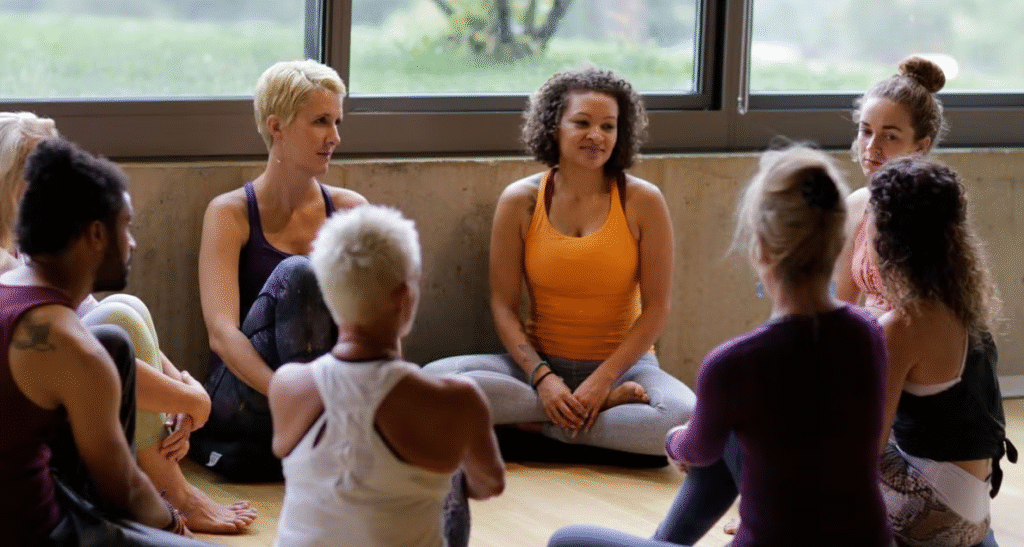
Understanding Family Constellations
Family constellations is a therapeutic approach created by Bert Hellinger that explores hidden dynamics within family systems. It works on the idea that unresolved traumas and unspoken family patterns can pass from one generation to another, shaping relationships, behaviors, and even life choices. Unlike traditional talk therapy, family constellations use group or individual settings to create a “constellation” of family members represented by participants or objects. Through this process, individuals gain insight into root causes of emotional struggles, relationship challenges, or repeated life patterns. Many people find that this work reveals truths hidden beneath the surface, offering clarity and resolution. The practice is not only powerful for those seeking healing but also serves as a deeply transformative modality for wellness professionals. This foundation makes family constellations training a compelling path for those who want to combine personal growth with professional skills.
The Role of a Family Constellations Facilitator
A facilitator is central to guiding the constellation process with sensitivity and care. They help clients bring forward issues and select representatives to embody family members or concepts within the systemic field. Facilitators must balance intuition with a structured methodology to ensure the session flows naturally and safely. Their role includes observing patterns, recognizing unspoken dynamics, and guiding participants toward resolution. Beyond technical skills, facilitators cultivate deep empathy, patience, and presence, creating a safe space for exploration. Many facilitators also integrate knowledge from psychology, coaching, or energy healing to enrich their practice. Through family constellations training, individuals learn to develop both practical skills and emotional awareness to take on this role effectively.
What Family Constellations Training Involves
Family constellations training typically combines both theoretical and experiential learning. Students are introduced to systemic theory, the philosophy of belonging, and the concept of transgenerational patterns. Training often includes modules on facilitation techniques, role-play exercises, and supervised practice sessions. The experiential component is vital because participants not only learn but also experience personal healing while engaging in constellations. Programs vary in length, ranging from several months to multi-year certifications depending on the level of depth and professional recognition. Many trainings also include mentorship, peer practice groups, and reflection to deepen learning. This comprehensive approach ensures that graduates are prepared to facilitate with skill, sensitivity, and integrity.
Benefits of Pursuing Family Constellations Training
One of the most profound benefits of family constellations training is the personal transformation that occurs alongside professional learning. Participants often heal their own family wounds while developing facilitation skills, making the process deeply enriching. For therapists, coaches, and wellness practitioners, the training expands their professional toolkit with a modality that works at a systemic and subconscious level. Facilitators gain the ability to address root causes of emotional pain and relational struggles, which traditional approaches may overlook. Additionally, training helps build confidence in holding space for vulnerable and intense experiences. Many professionals find that incorporating family constellations into their practice strengthens client trust and opens new opportunities. This blend of personal growth and professional empowerment makes the training a worthwhile investment.
Who Should Consider Enrolling in Family Constellations Training
This training appeals to a wide range of people who are drawn to both healing and professional development. Therapists, psychologists, and counselors often pursue it to deepen their therapeutic approaches. Life coaches and wellness practitioners may use it to bring systemic awareness into client sessions, offering holistic results. Spiritual healers and energy workers find that constellations complement their existing practices, bringing structure to intuitive healing. Beyond professionals, individuals on a personal journey of self-discovery are often attracted to training for its profound healing impact. Many participants discover that their own personal breakthroughs inspire them to help others in the same way. This makes family constellations training not only a career pathway but also a transformational life experience.
How to Choose the Right Family Constellations Training Program
Selecting the right training program is crucial for achieving both personal and professional goals. Accreditation and the trainer’s level of experience should be among the first factors to consider. A well-structured program that combines theory, practice, and mentorship provides the best learning environment. Some people prefer in-person training for its immersive experience, while others value the flexibility of online training programs. Evaluating how the program aligns with your personal values and learning style is also important. Cost considerations should be balanced with the quality of instruction and long-term opportunities that certification may provide. A thoughtful selection process ensures that your training journey is both meaningful and rewarding.
Professional Opportunities After Completing Training
Completing family constellations training opens doors to a variety of professional opportunities. Many graduates choose to establish private practices as certified facilitators, working with individuals or groups. Others integrate the modality into counseling, coaching, or psychotherapy practices to broaden their impact. There are opportunities to lead workshops, retreats, or community healing circles that focus on systemic awareness. Corporate and organizational settings also benefit from constellations work, especially in leadership development and team dynamics. Certification not only enhances credibility but also builds client trust, making it easier to attract individuals who seek systemic healing. With growing global recognition of the method, practitioners can work internationally and connect with a supportive network of facilitators. The versatility of professional pathways makes training a valuable investment for long-term career growth.
Challenges and Commitments in Training
Embarking on family constellations training requires dedication and emotional resilience. The process often brings up personal triggers and unresolved family dynamics, which can feel intense during practice sessions. Trainees must be willing to embrace vulnerability while learning facilitation skills. Time commitment is also significant, as programs may require months or years of consistent engagement. Balancing personal healing with professional development can be challenging, but it is also what makes the training so transformative. Many trainees discover that perseverance through these challenges deepens their empathy and confidence as facilitators. The rewards of training come not only from acquiring a new skill but also from growing as a person capable of holding space for others.
Integrating Family Constellations Into a Coaching or Therapy Practice
Once training is complete, the next step is learning how to integrate constellations into an existing practice. Many facilitators combine it with modalities such as cognitive behavioral therapy, mindfulness, or somatic practices to create a holistic approach. Sessions can be structured as stand-alone constellations or woven into ongoing client work. Ethical considerations are essential, ensuring that constellations are facilitated with sensitivity, respect, and client consent. Building trust with clients is especially important since the modality may be unfamiliar to them at first. Offering introductory workshops or short sessions can help clients become comfortable with the method. Over time, family constellations can become a central part of a practice, attracting clients who resonate with systemic healing.
FAQs about Family Constellations Training
How long does it take to complete training?
Training length varies, with some programs lasting several months and others extending over one to two years. The timeline depends on the level of certification and depth of study.
Do you need a background in psychology to enroll?
No, many programs welcome participants from diverse backgrounds. While a therapy or coaching background can help, it is not always required.
Is certification recognized internationally?
Recognition depends on the program and accrediting body. Some certifications are internationally respected, while others are more regionally focused.
Can training be done online effectively?
Yes, many programs now offer online training that combines virtual classes, breakout groups, and practice sessions. While different from in-person formats, online learning can be just as effective with proper structure.
What personal benefits can participants expect?
In addition to professional skills, participants often experience deep personal healing, greater clarity in relationships, and stronger emotional resilience.


